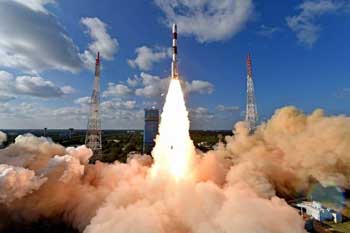– V.Srinivas IAS –
– G 20 A Decade in Multilateralism – Part 10 –
We have reached the 10th and last article in the series G20 – A Decade in Multilateralism. The journey traversed from Washington DC in 2008 to Hamburg 2017 has been an extremely challenging sojourn for the global economy. The G20 has emerged as the world’s premier forum for international economic cooperation and for forging a comprehensive and integrated narrative for strong, sustainable and balanced growth. The G20 was successful in avoiding a second Great Depression in 2009 by putting together the largest taxpayer funded bailout of the global financial system. Since then there has been a massive regulatory oversight of financial institutions and banks. The major institutional reform that has been carried out by the G20, has been the governance reforms in the IMF and the emergence of the Financial Stability Board as the major forum for a strong regulatory framework in the financial sector.
The G20 has diversified into climate change, energy security, agriculture, sustainable development initiatives and skill development. A G20 summit meeting is preceded by meetings of working groups, Sherpa meetings, Finance meetings, Engagement Group meetings and then finally the Leaders Summit meeting. There is a B20 (for business), C20 (for civil society), L20 (for labor groups and unions), S20 (for scientific and academic community), T20 (for think tanks and research institutions), W20 (for women’s groups) and Y20 (for youth leaders). There is a high level of deliberative democracy at work in the G20 meetings.
The last G20 Hamburg summit cost Germany 130 million euros, marked by violent protests against globalization on a daily basis causing an upheaval in the daily lives of citizens. The landmark event of the Hamburg G20 Summit Meeting was that it had to deal with the United States distancing itself from global governance, poor performance of the WTO with the slow death of the Doha Round of Trade negotiations of WTO, and the rise of China and Germany in the G20. The G20 remains committed to the principles of “strong, sustainable, balanced and inclusive growth.”
The G20’s road ahead leads to Argentina. As Argentina took over the Presidency of the G20, President Mauricio Macri said that it was a historic day for all Argentines, as they assumed Presidency of the G20, the most relevant global forum for economic cooperation. It would be first G20 summit meeting in Latin America in November 2018. Argentina said that it aspires to be a voice for an entire region. The major goal that Argentina would pursue in its Presidency was to reduce poverty. Argentina’s vision for G20 countries was that they should cooperate to generate inclusive growth. “Building Consensus for Fair and Sustainable Development” is the slogan for the Argentine Presidency of the G20 in 2018. The 3 key themes that would be pursued in 2018 are the future of work, infrastructure for development and a sustainable food future.
The future of work aimed to unleash the people’s potential, to ensure that the wave of technological advances is inclusive and does not lead to economic exclusion. Infrastructure for development aims at investments in infrastructure that spurs growth and productivity, providing physical and digital access for future opportunities. Sustainable food future aims at food security and human health as a finite and non-renewable resource and seeks their preservation.
Argentina further stated that the G20 create the coordination necessary to foment major public-private partnerships to create a sustainable future.
On March 20, 2018 the G20 Finance Ministers and Central Bank Governors met in Buenos Aires. The global economic outlook has witnessed an upsurge and there was a pickup in investment and trade. The Finance Ministers and Central Bank Governors agreed to address the challenges posed by new technologies, infrastructure as an asset class and crypto assets. They also agreed to strengthen the contribution of trade to the G20 economies. The official communiquéstated“international trade and investment are important engines of growth, productivity, innovation, job creation and development.”
The agenda ahead continues to be huge be it in trade reform, the Sustainable Development Goals, the Africa Partnership and Climate Change. The G20 has made a major contribution to setting the global governance agenda. To conclude it can be said that the G20 has made a serious contribution to making globalization fairer and more sustainable while transforming the processes of international negotiations.
G 20 A decade in multilateralism
Click Here To Read Full Series
G20- A decade in multilateralism – A lecture by V.Srinivas IAS
Click Here To watch or listen full lecture
V.Srinivas IAS
Senior Bureaucrats and Author
V.Srinivas is an IAS officer of 1989 batch, currently posted as Chairman Board of Revenue for Rajasthan and Chairman Rajasthan Tax Board.
He has served as Advisor to Executive Director (India) in the IMF, Private Secretary to Finance Minister & External Affairs Minister Government of India and Planning & Finance Secretary Rajasthan.
Disclaimer : The views expressed by the author in this feature are entirely his own and do not necessarily reflect the views of INVC NEWS.












